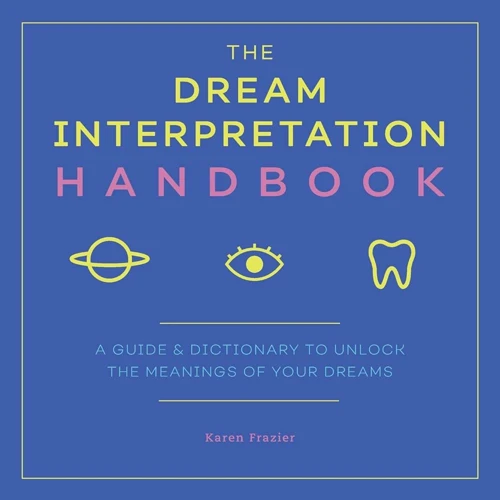Nightmares are enigmatic and often perplexing experiences that can leave us feeling unsettled and disturbed. These intense and vivid dreams can be filled with symbolism and hidden messages, offering insights into our deepest fears and unresolved issues. Understanding the symbolism within nightmares is crucial for unraveling their meaning and deciphering the messages they convey. By exploring the impact of nightmares on our psyche, interpreting common symbols, and analyzing recurring themes, we can begin to navigate the complex landscape of our unconscious mind. In this article, we will delve into the world of nightmares, uncover their hidden messages, and discover techniques for analyzing these haunting dreams in order to overcome their grip and harness their power for personal growth and self-reflection.
Understanding Nightmares

Nightmares can be intense and disturbing experiences that leave us perplexed and filled with a sense of unease. These mysterious dreams can have a profound impact on our psyche and well-being, often reflecting unresolved traumas or deep-seated fears. Understanding the nature of nightmares requires exploration and analysis. By recognizing the common symbols that appear in nightmares and delving into the messages they convey, we can gain insight into our unconscious mind and the issues it may be grappling with. Whether it’s facing our fears, dealing with trauma, or uncovering recurring themes, understanding nightmares can provide valuable opportunities for growth and self-reflection. To learn more about the impact of nightmares on our well-being, the connection between nightmares and unresolved trauma, and common nightmare dream themes, check out these insightful articles: “The Impact of Nightmare Dreams on Well-Being“, “The Connection Between Nightmares and Unresolved Trauma“, and “Common Nightmare Dream Themes“.
What are nightmares?
Nightmares are vivid and unsettling dreams that can evoke intense emotions such as fear, anxiety, and distress. They typically occur during the rapid eye movement (REM) stage of sleep and are characterized by disturbing and negative content. While nightmares are a normal part of the dreaming process, they can differ greatly in terms of intensity and frequency for each individual. These dreams often involve threatening situations, such as being chased, attacked, or experiencing a sense of impending doom. Nightmares can be vividly remembered upon waking, and the emotions they elicit can linger long after the dream is over, affecting our mood and overall well-being. It’s important to note that nightmares are distinct from night terrors, which are episodes of intense fear and panic that occur during non-REM sleep. Understanding what nightmares are and recognizing their unique qualities is the first step in navigating their impact on our psyche and overall sleep quality.
The impact of nightmares on our psyche
Nightmares can have a significant impact on our psyche, affecting our mental and emotional well-being. Here are some key ways in which nightmares can influence our overall psychological state:
1. Emotional Distress: Nightmares often evoke intense emotions such as fear, anxiety, sadness, and anger. These emotions can linger even after we wake up, affecting our mood and general outlook throughout the day.
2. Sleep Disruptions: Nightmares can disrupt our sleep patterns, causing restless nights and fragmented sleep. This can lead to feelings of fatigue, irritability, and difficulty concentrating during the day.
3. Anxiety and Fear: Repeated nightmares or persistent fear of experiencing nightmares can lead to heightened levels of anxiety. The fear of falling asleep again and the anticipation of facing another horrifying dream can create a cycle of anxiety and sleep disturbance.
4. Post-Traumatic Stress: Nightmares can be symptomatic of, or contribute to, post-traumatic stress disorder (PTSD). Traumatic experiences can manifest in nightmares, causing distressing and vivid recollections of the event. These nightmares may perpetuate a perpetual cycle of trauma and anxiety.
5. Impact on Daily Functioning: Frequent nightmares can disrupt our daily functioning, affecting our productivity, relationships, and overall quality of life. The lingering effects of nightmares can make it difficult to focus on tasks, engage in social activities, or fully enjoy life.
It is important to recognize the profound impact that nightmares can have on our psyche. Seeking professional help, such as therapy, can be beneficial in understanding and addressing the underlying causes of nightmares and their impact on our mental health.
Interpreting Symbolism in Nightmares

Nightmares often contain a rich tapestry of symbolism that holds hidden meanings waiting to be unraveled. The presence of symbolism in these unsettling dreams serves a purpose, offering insights into our deepest fears and desires. By exploring and interpreting these symbols, we can gain a deeper understanding of the messages our nightmares are trying to convey. Some common symbols in nightmares include falling, being chased, or encountering monsters. While the interpretation of these symbols can vary depending on the individual, certain meanings tend to be universally recognized. Falling, for example, can symbolize a lack of control or a fear of failure, while being chased may represent unresolved conflicts or a feeling of being pursued by our problems. By examining the symbolism in our nightmares, we can begin to unlock the hidden messages buried within our subconscious mind.\
Why do nightmares contain symbolism?
There are several reasons why nightmares contain symbolism. Understanding and interpreting this symbolism is crucial for unraveling the deeper meaning behind these haunting dreams. Here are some key reasons why nightmares often utilize symbolism:
1. Expression of subconscious thoughts and emotions: Nightmares serve as a gateway to our subconscious mind, where hidden fears, anxieties, and unresolved emotions reside. The symbolism in nightmares acts as a language through which these deep-seated thoughts and emotions can be expressed.
2. Protection of the conscious mind: Our conscious mind has a natural tendency to shield us from uncomfortable or distressing experiences. Nightmares employ symbolism to communicate distressing or traumatic events in a more metaphorical or abstract manner, protecting the conscious mind from direct exposure to the full intensity of these experiences.
3. Amplification of emotional impact: Symbolism enhances the emotional impact of nightmares by intensifying the fear, anxiety, or discomfort associated with certain images or situations. This amplification helps the subconscious mind convey the significance and urgency of the underlying message it is trying to communicate.
4. Unconscious processing of experiences and emotions: Nightmares often emerge as a result of the brain’s attempt to process and integrate unconscious thoughts, emotions, and experiences. The symbolism within nightmares allows the mind to explore and make sense of these internal conflicts or unresolved issues.
5. Individual interpretation and personal meaning: The symbolism in nightmares is highly subjective and varies from person to person. It can be influenced by personal experiences, cultural background, and individual beliefs. Analyzing the symbolism in nightmares provides an opportunity for self-reflection and a deeper understanding of one’s own psyche.
By recognizing and interpreting the symbolism within nightmares, we can gain valuable insights into our unconscious thoughts, emotions, and unresolved issues. This understanding opens the door for personal growth, self-reflection, and the potential for overcoming fears and traumas that may be holding us back in waking life.
Common symbols in nightmares and their meanings
Nightmares often contain a plethora of symbols that carry significant meanings. These symbols can vary from person to person, but there are some common themes that frequently appear in nightmares. One of the most prevalent symbols is falling, which typically represents a loss of control or a fear of failure. Another common symbol is being chased, which often signifies avoidance or the need to confront something in our waking lives. Similarly, teeth falling out in dreams can symbolize feelings of powerlessness or insecurities about one’s appearance or communication abilities. Another symbol that frequently appears is being trapped or unable to move, which can reflect feelings of being stuck or restricted in one’s life. Additionally, being naked in a dream can symbolize vulnerability or the fear of being exposed and judged by others. These are just a few examples of the numerous symbols that can manifest in nightmares, and interpreting them is essential in understanding the underlying emotions and messages embedded within these unsettling dreams.
Exploring Messages in Nightmare Dreams

Nightmare dreams harbor hidden messages that can offer profound insights into our subconscious mind. These messages are often symbolic in nature, requiring careful exploration and interpretation. By analyzing the themes and symbols that appear in our nightmares, we can unravel the deeper meanings and implications they hold. These messages may be influenced by our unconscious fears and unresolved issues, serving as a reflection of our innermost thoughts and emotions. Identifying recurring themes and patterns within our nightmare dreams can provide valuable clues about the areas of our lives that require attention and resolution. By delving into these messages, we can gain self-awareness, make positive changes, and embark on a journey of personal growth and transformation.
The messages hidden within nightmares
The messages hidden within nightmares can provide valuable insights into our subconscious mind and innermost thoughts. These messages are often encoded in symbolic imagery and can reflect unresolved conflicts, repressed emotions, or subconscious fears. Each nightmare is unique, and the messages may vary depending on the individual and their personal experiences. However, there are common themes that may emerge. For example, a recurring nightmare about falling could symbolize a lack of control or fear of failure in waking life. Similarly, being chased in a dream may represent avoidance or the need to confront a difficult situation. Paying attention to the emotions and sensations experienced during a nightmare can also provide clues to the underlying message. It’s essential to approach the interpretation of these messages with an open mind and consider the context of one’s life and experiences. Keeping a dream journal and reflecting on the symbols and themes that arise can help unravel the hidden messages and gain a deeper understanding of ourselves.
Identifying recurring themes and patterns
Identifying recurring themes and patterns within nightmare dreams can provide valuable insights into our subconscious mind. By paying close attention to the recurring elements, symbols, and motifs that appear in our nightmares, we can begin to decipher their deeper meaning. These recurring themes can range from specific settings, such as being chased or falling, to recurring characters or symbols, such as spiders or water. The repetition of these themes suggests that they hold significant importance in our psyche and may represent unresolved issues or fears that manifest in our dreams. Keeping a dream journal and recording the details of our nightmares can help us identify these recurring themes and patterns over time. By analyzing and reflecting on these themes, we can gain a better understanding of the underlying message our dreams are trying to convey. It is important to note that the interpretation of these themes is highly personal, and what may hold a specific meaning for one individual may differ for another. It is essential to trust our own intuition and emotions when analyzing these recurring themes and patterns in our nightmare dreams.
Unconscious fears and unresolved issues
Unconscious fears and unresolved issues lie at the core of nightmares, manifesting in symbolic and often unsettling ways. Nightmares have the power to bring these hidden fears and unresolved issues to the surface of our consciousness, forcing us to confront them in a vivid and sometimes distressing manner. These dreams act as a mirror, reflecting aspects of ourselves that we may be suppressing or avoiding in our waking lives. Whether it’s a fear of failure, loss, abandonment, or past trauma, nightmares provide a safe space for these emotions and experiences to be explored. Through the analysis of nightmare symbolism and the identification of recurring themes, we can begin to unravel the deeper meaning behind these dreams and gain valuable insights into our unconscious mind. By recognizing and addressing these unconscious fears and unresolved issues, we have the opportunity to heal, grow, and move towards a state of emotional well-being and inner peace.
Techniques for Analyzing Nightmare Dreams

Analyzing nightmare dreams involves employing various techniques to gain deeper insights into the symbolism and messages they hold. One effective technique is keeping a dream journal, where you document your dreams immediately upon waking. This allows you to capture details and emotions while they are still fresh in your mind. Engaging in dream analysis techniques, such as free association and visualization, can help unravel the hidden meaning behind the symbols and themes in your nightmares. Seeking professional help from therapists or dream experts who specialize in dream analysis can provide valuable guidance and interpretation. By utilizing these techniques, you can navigate the intricate labyrinth of your nightmares and unlock the powerful messages they contain, ultimately leading to personal growth and self-discovery.
Keeping a dream journal
Keeping a dream journal is a valuable technique for analyzing and understanding the symbolism and messages within nightmare dreams. By recording our dreams immediately upon waking, we can capture the vivid details and emotions while they are still fresh in our minds. A dream journal acts as a repository of our subconscious thoughts, allowing us to reflect on the patterns, symbols, and themes that emerge in our nightmares. When maintaining a dream journal, it is important to be consistent and thorough. Describe the main events, characters, and emotions in as much detail as possible. Additionally, don’t forget to include any relevant context or personal experiences that may have influenced the dream. By reviewing our dream journal entries over time, we may begin to identify recurring symbols or themes, shedding light on our unconscious fears and unresolved issues. Having a dream journal also serves as a valuable reference point when engaging in dream analysis techniques or seeking professional help. Through the act of recording our dreams, we gain insight into the hidden aspects of our psyche and can begin to unravel the messages that nightmares are conveying to us.
Engaging in dream analysis techniques
Engaging in dream analysis techniques is a valuable practice for unraveling the hidden meanings and messages within nightmares. There are various approaches and methods that can assist in decoding the symbolism present in dreams. One technique is to keep a dream journal, where one can document their dreams immediately upon waking. This helps capture the details and emotions of the dream, providing a foundation for analysis later on. Another method is to reflect on the emotions experienced during the nightmare and explore their connection to real-life experiences or unresolved issues. This process involves introspection and self-reflection, allowing individuals to make connections between their dreams and their waking life. Additionally, utilizing visualization and creative exercises can be beneficial in accessing deeper layers of the subconscious mind and uncovering hidden symbolism. These techniques involve actively engaging with the dream imagery and exploring alternate perspectives and interpretations. Engaging in dream analysis techniques empowers individuals to delve into the rich symbolism and messages within nightmares, providing a pathway towards understanding and personal growth.
Seeking professional help
When nightmares become overwhelming and start affecting your overall well-being, it may be beneficial to seek professional help. Mental health professionals, such as therapists or psychologists, have the expertise to guide you through the analysis and interpretation of your nightmares. They can provide a safe and supportive environment where you can openly discuss your dreams and explore the underlying emotions and experiences that may be contributing to the nightmares. Through various therapeutic techniques, such as dream analysis or trauma-focused therapy, they can help you uncover the deeper meaning behind your nightmares and assist you in processing any unresolved issues that may be haunting your subconscious mind. Additionally, they can teach you coping strategies and relaxation techniques to manage the anxiety and distress caused by nightmares. Remember, professional help can offer valuable insights and support, empowering you to overcome the grip of nightmares and regain control of your mental well-being.
Overcoming Nightmares and Harnessing their Power
Overcoming nightmares can be a daunting task, but by developing effective coping strategies, we can reclaim control over our dreams and utilize their power for personal growth and self-reflection. It is essential to acknowledge the intensity of these dreams and the emotions they evoke, while also recognizing that they offer valuable insights into our unconscious fears and unresolved issues. By harnessing the power of nightmares, we can confront our deepest anxieties and work towards healing and transformation. Developing coping strategies such as creating a calming bedtime routine, practicing relaxation techniques, and engaging in lucid dreaming exercises can help mitigate the impact of nightmares. Additionally, utilizing nightmares as a tool for self-reflection can lead to powerful insights and personal growth. By journaling about our dreams, discussing them with a therapist or dream analyst, and exploring their underlying symbolism, we can begin to decipher the messages they hold and navigate the path towards healing and empowerment.
Developing coping strategies for nightmares
Developing coping strategies for nightmares is essential for those who frequently experience these distressing dreams. These strategies can help individuals regain a sense of control and alleviate the fear and anxiety associated with nightmares. One effective approach is to establish a bedtime routine that promotes relaxation and calmness before sleep. Engaging in activities such as reading a book, taking a warm bath, or practicing meditation can help create a peaceful environment conducive to positive dreams. Additionally, implementing stress reduction techniques throughout the day, such as exercise, deep breathing exercises, or mindfulness practices, can contribute to a more restful sleep and reduce the occurrence of nightmares. Another strategy is to confront and process any underlying emotional issues that may be contributing to the intensity of the dreams. Seeking therapy or counseling can provide a safe space to explore these emotions and work towards resolution. Visualization techniques can also be employed, where individuals imagine a positive outcome or image before sleep, creating a protective mental barrier against negative dream experiences. Finally, creating a soothing and comfortable sleep environment, free from potential triggers or distractions, can contribute to a more peaceful and uninterrupted sleep, reducing the likelihood of nightmares. By implementing these coping strategies, individuals can regain a sense of empowerment over their nightmares and improve their overall sleep quality and well-being.
Utilizing nightmares for personal growth and self-reflection
Utilizing nightmares for personal growth and self-reflection can be a powerful tool in our journey towards self-improvement and understanding. By embracing our nightmares rather than fearing them, we can unlock their potential for transformation and gain valuable insights into our subconscious mind. Here are some effective strategies for harnessing the power of nightmares:
1. Embrace the discomfort: Instead of avoiding or suppressing nightmares, allow yourself to fully experience the emotions and sensations they bring. This can be challenging, but by acknowledging and accepting your nightmares, you create an opportunity for growth and healing.
2. Keep a dream journal: Keeping a detailed record of your nightmares can help you identify patterns, symbols, and recurring themes. Write down every detail you can recall, including emotions, visuals, and any significant events or symbols. This journal will serve as a valuable resource for later analysis and reflection.
3. Reflect on the symbolism: Analyze the symbols and imagery in your nightmares. Look for connections to your waking life, unresolved issues, or hidden fears. Remember that symbols in dreams can vary in personal meaning, so trust your intuition and explore what resonates with you.
4. Seek guidance from a professional: If your nightmares are causing significant distress or interfering with your daily life, consider seeking the help of a therapist or dream analyst. They can provide valuable insights and techniques for understanding your nightmares and utilizing them for personal growth.
5. Engage in self-reflection: Take the time to reflect on the messages and lessons your nightmares might be conveying. Ask yourself what fears or issues are being brought to the surface and how they relate to your waking life. Use this self-reflection to gain a deeper understanding of yourself and make positive changes in your life.
6. Take action: Once you’ve gained insight from your nightmares, devise a plan of action to address any underlying fears or unresolved issues. This could involve seeking further therapy, making lifestyle changes, or practicing self-care techniques to promote emotional well-being.
By utilizing nightmares as a tool for personal growth and self-reflection, we can transform these unsettling experiences into opportunities for healing and self-discovery. Embracing the power of our nightmares allows us to tap into the wisdom of our subconscious mind and create a path towards a more fulfilling and authentic life.
Conclusion
In conclusion, analyzing the symbolism and messages within nightmare dreams can be a powerful tool for self-exploration, understanding, and personal growth. Nightmares offer a unique window into our unconscious mind, providing us with valuable insights into our fears, unresolved issues, and recurring patterns. By keeping a dream journal, engaging in dream analysis techniques, and seeking professional help if needed, we can unravel the meaning behind our nightmares and gain a deeper understanding of ourselves. Additionally, developing coping strategies for nightmares allows us to navigate these unsettling dreams with greater ease and resilience. Moreover, harnessing the power of nightmares for personal growth and self-reflection can be a transformative experience. Utilizing the messages and symbolism within nightmares can lead to breakthroughs, healing, and a deeper connection to our inner selves. As we embark on this journey of unraveling the mysteries within our nightmares, we open ourselves up to a world of self-discovery and empowerment. So embrace the intriguing realm of nightmare dreams, and let them guide you towards a greater understanding of your subconscious mind and the hidden depths within your psyche.
Frequently Asked Questions
What causes nightmares?
Nightmares can be triggered by various factors, including stress, anxiety, trauma, medication, sleep disorders, or even certain foods and substances. Identifying the underlying cause of your nightmares can help in addressing and managing them effectively.
Are nightmares harmful?
While nightmares can be distressing, they typically do not cause any physical harm. However, they can have a significant impact on our mental and emotional well-being, leading to disrupted sleep patterns and increased anxiety levels.
Can nightmares be interpreted?
Yes, nightmares can be interpreted and understood by analyzing the symbolism and messages within them. Exploring the elements, themes, and emotions present in the dream can provide valuable insights into our subconscious thoughts, fears, and unresolved issues.
What are some common symbols in nightmares?
Common symbols in nightmares include falling, being chased, teeth falling out, being trapped or lost, being attacked, or encountering supernatural entities. The interpretation of these symbols can vary depending on personal experiences and cultural backgrounds.
Should I keep a dream journal?
Keeping a dream journal can be highly beneficial for analyzing nightmares and uncovering patterns. By jotting down your dreams immediately upon waking, you can capture important details that might otherwise fade away and gain a deeper understanding of your dream world.
How do recurring nightmare themes affect us?
Recurring nightmare themes can indicate unresolved issues or deep-seated fears that need attention. These themes often appear to bring unresolved emotions to the surface, providing an opportunity for self-reflection, growth, and resolution.
Can nightmares be a reflection of unconscious fears?
Yes, nightmares often reflect our unconscious fears and anxieties. Through unsettling and vivid imagery, nightmares can bring to light the hidden fears and worries that may be impacting our waking lives.
What are dream analysis techniques?
Dream analysis techniques involve examining the symbols, emotions, and narratives of nightmares to gain insight into their meaning. Techniques may include free association, exploring personal associations with symbols, and considering the broader psychological interpretations of dreams.
When should I seek professional help for nightmares?
If nightmares significantly disrupt your daily life, cause extreme distress, or persistently recur, it may be beneficial to seek professional help. A therapist or dream analyst can assist in understanding and resolving the underlying issues contributing to your nightmares.
How can nightmares be utilized for personal growth?
Nightmares can be harnessed as a tool for personal growth by exploring their messages and symbolism. By facing and addressing the fears and unresolved issues presented in our nightmares, we can use them as opportunities for self-reflection, healing, and personal transformation.








